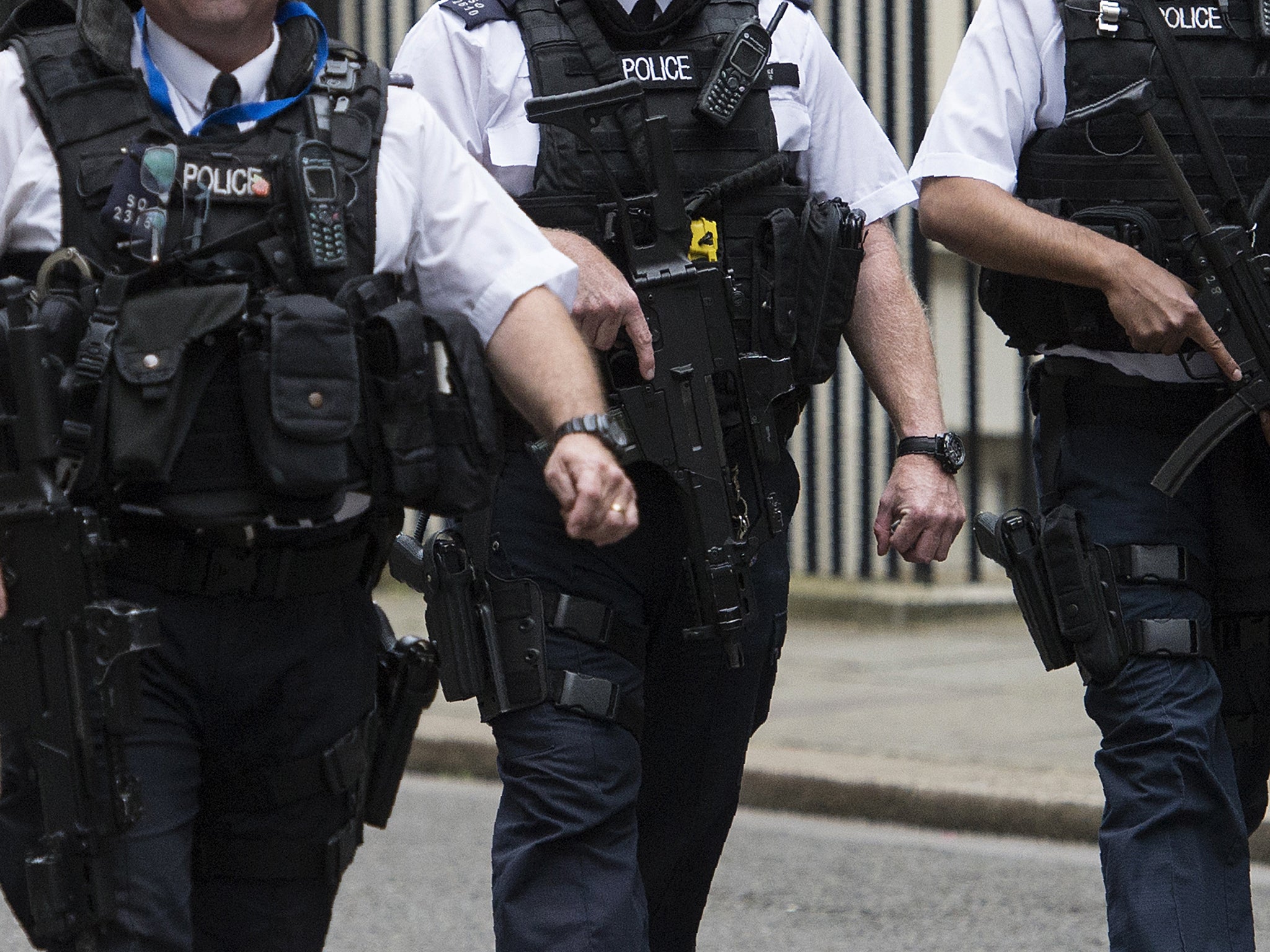British police foil at least 10 UK terror attacks in two years as officials warn Isis is 'not the whole story'
Deputy Assistant Commissioner Neil Basu says police handling 550 'live cases'

Britain's security services and counter-terrorism units have foiled at least ten attacks in the past two years, it has been revealed.
It also emerged that authorities are currently dealing with around 550 “live” cases at any one time.
The figures were disclosed by Deputy Assistant Commissioner Neil Basu, the new senior national co-ordinator for counter-terrorism policing.
The official threat level for international terrorism in the UK currently stands at severe - meaning an attack is “highly likely”.
Security services are on high alert following a string of recent attacks abroad and increased military pressure on Isis has raised fears of fresh atrocities.
Around 850 people linked to the UK and regarded as a security threat are believed to have taken part in the Syrian conflict, with just under half thought to have returned to the country.
Mr Basu said: “We continue to work at a relentless pace with our key partners, currently dealing with around 550 live cases at any one time.
“The counter terrorism network and security services hav successfully foiled at least 10 attacks in the last two years, with 294 convictions for terror-related offences.”
In a speech delivered in February, then-home secretary Theresa May said police and security agencies had disrupted seven terrorist plots to attack the UK in the previous 18 months, with all either linked to or inspired by Isis and its propaganda.
Mr Basu said the “increasing tempo and enduring nature of terrorist activity worldwide is causing global anxiety”.
In a blog post published by the National Police Chiefs' Council, he wrote: “As soon as Daesh (Isis) started to lose on the battlefields abroad, it was clear their tactics would be directed closer to home.
“The evidence has been plain to see with the horrors suffered repeatedly by those in France, Germany and Belgium.”
He said the emergence of Isis in Syria and Iraq is “not the whole story”.
The officer wrote: “The UK counter terrorism network has had to also focus on many other issues, including domestic extremism and the rise of the far right as well as managing the risk posed by other extremist groups.
“The continuing threat from Northern Ireland-related terrorism and al-Qaeda also remains present, with supporters of both seeking to act.”
Authorities depend on the support of the public to successfully confront the threat, Mr Basu said, saying people can help by reporting concerns about those they fear are becoming exposed before they descend into criminality and violence.
Last year police and partners effectively reduced vulnerability in nearly 1,000 cases. Mr Basu urged the public to be “alert but not alarmed” and report anything suspicious.
He added: “Despite all of our essential prevention work it is a sad fact that terrorist attacks can and do happen. But if the worst were to take place we are ready, both to respond with maximum effect and to recover.”
Armed assets are increasing “dramatically” across the UK, he said, adding that by being better equipped “we are better able to reach a scene quickly, gain control and stop the threat”.
Mr Basu concluded: “The only way for us to prevent terrorism in this country is for the police to be the public and the public to be the police. Communities will defeat terrorism. Strong, cohesive communities, whatever their religion, race, creed or colour, working together to keep this country safe.”
Press Association
